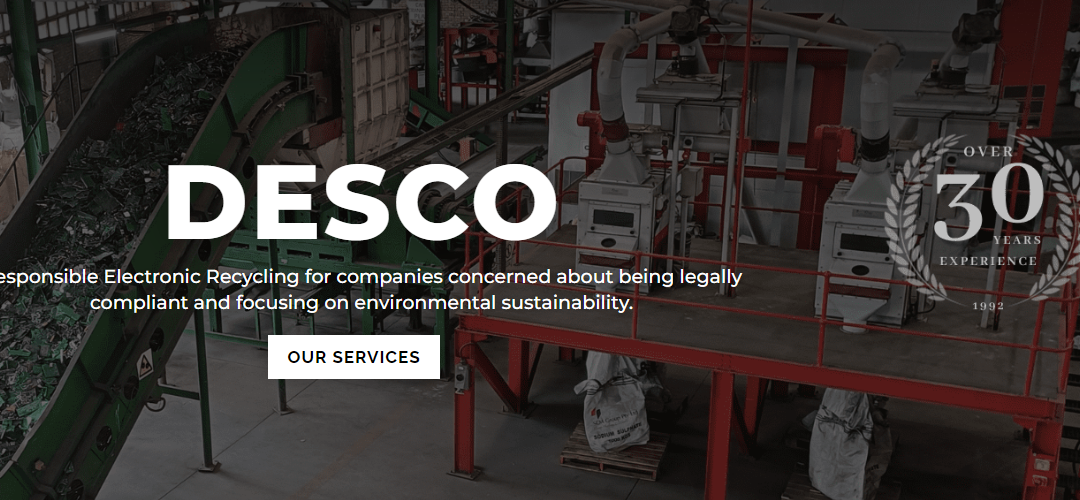The improper disposal of e-waste, including vapes and e-cigarettes, poses severe environmental and health risks, emphasising the critical need for enhanced recycling infrastructure and public awareness campaigns. These devices contain hazardous materials such as lithium-ion batteries, which, if not handled correctly, can leak toxic substances into the environment.
As the popularity of these electronic devices continues to grow, Desco Electronic Recyclers is raising awareness about the pressing environmental and social issues associated with their disposal.
The Company’s MD Giulio Airaga sheds light on the critical need for improved recycling mechanisms to manage this rapidly growing waste stream. “E-cigarettes are becoming an exploding waste stream.”
“These products are easily accessible, relatively inexpensive, and often disposed of improperly. With less than 5% of the market likely recycling these products, it’s probable that over 95% end up in landfills. This is a major issue because they contain lithium-ion batteries,” he explains.
Research conducted by the Council for Scientific and Industrial Research (CSIR) has highlighted the urgent need for improved e-waste management practices. The CSIR study points out that South Africa generates approximately 360,000 tons of e-waste annually, with a very small percentage being recycled.
Airaga emphasises the importance of incentivising consumers to return used vapes and e-cigarettes for proper disposal. “Producers, sellers, and retailers need to incentivise people to bring back these products instead of discarding them. There should be a baseline incentive for this practice.”
Despite the challenges, Desco is committed to offering solutions. “We are open to receiving these devices from the public, although it is a costly process for us. Ideally, retailers should collect and centralise the devices and then deliver them to recyclers like Desco.
“We provide full reporting, traceability, and certificates of destruction, ensuring a responsible recycling process,” adds Airaga.
The rise in vaping’s popularity is driven by several factors. Many consumers perceive vaping as a safer alternative to traditional smoking due to the absence of tobacco combustion. The availability of diverse flavours and the convenience of discreet use further contribute to their appeal.
The vaping community has grown significantly, fostering a sense of belonging among users. However, this surge in usage has led to a corresponding increase in waste generated by disposable vapes and e-cigarettes.
Lithium-ion batteries, in particular, pose a risk of fire hazards in landfills, while other components can leach toxic chemicals into the soil and groundwater. These environmental impacts underscore the necessity for proper recycling practices.
Desco Electronic Recyclers advocates for the establishment of efficient and effective recycling programs specifically for vaping devices. Proper recycling not only ensures the safe disposal of hazardous materials but also promotes the recovery of valuable resources, supporting a more sustainable approach to manufacturing and consumption.
“Responsible recycling is imperative. It helps prevent environmental damage and promotes the recovery of materials that can be reused, contributing to a circular economy,” he concludes.
Producers and retailers must take a proactive role, they should provide mechanisms to take back used devices, centralise their collection, and collaborate with recyclers for proper disposal. If centralised, they can partner with reputable recyclers like Desco to handle the disposal and collection.


